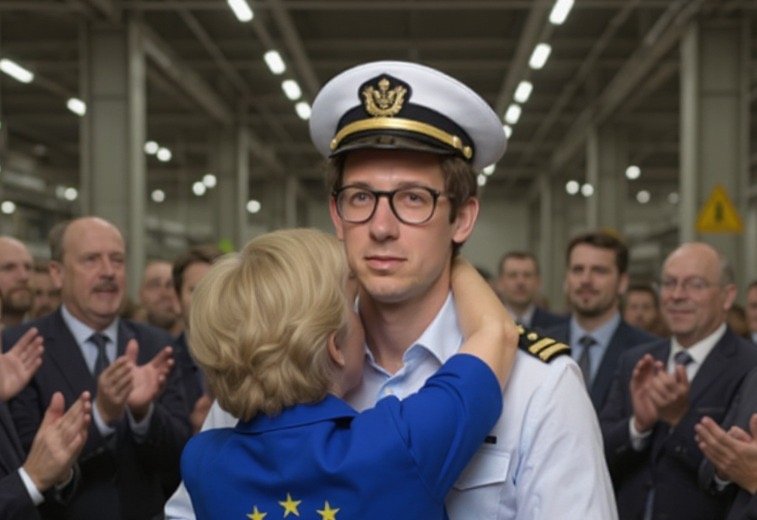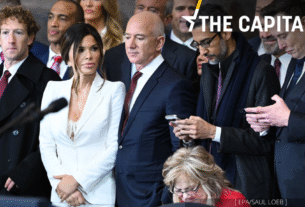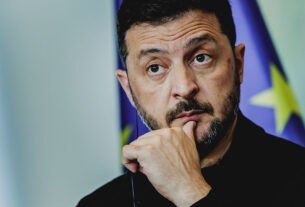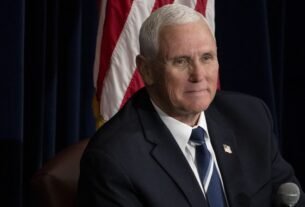German famously has a word for everything, even reporters who are in the tank for the people they cover. These Hofberichterstatter are named after the chroniclers of Europe’s royal courts who faithfully bent reality in the service of their sovereign.
Brussels is full of a contemporary incarnation of these poor souls, most notably (and influentially) at the Financial Times. While the Japanese-owned London-based paper has a glorious history of covering rogue traders and the business world writ large, its political coverage, which relies much more on maintaining access to key decision makers, has always been somewhat less aggressive, and at times hagiographic – especially in the European capital.
The ongoing furore over the paper’s inaccurate coverage surrounding Ursula von der Leyen’s recent flight to Bulgaria, which cast the Commission in a heroic light, is just the latest example. (For the uninitiated: The paper falsely claimed her plane’s GPS was targeted by Russian interference, forcing it to circle the airport for an hour before the pilots could land with “paper maps”.)
Matt Kaminski, the founding editor and mastermind behind Politico Europe (and a former FT reporter) reflected on the FT’s unique status in Brussels in a recent podcast interview.
Recalling his experience at the The Wall Street Journal in Brussels in the 1990s, he described the special access enjoyed by the FT’s then-bureau chief, Lionel Barber (who later became the paper’s editor) and the suspicion that “half his scoops were officials faxing him documents at four in the afternoon that he just wrote up because they wanted it out there for whatever reason.”
“Because they were fairly polite to the European Commission, the FT stayed the more favoured outlet,” Kaminski added.
That “polite” approach goes a long way towards explaining how the FT became the de facto message board for European leaders; it’s a safe place.
It would be unthinkable, for example, for the FT to take the Commission president to court to force the publication of her text messages, as The New York Times did recently. Poor form.
Even if this approach makes a mockery of the paper’s bold motto – ‘Without fear and without favour’ – it ensures ready access to the Davos set and is very good for business.
What it’s not good for is the integrity of the Commission.
It was only after the holes and outright inaccuracies in the FT’s reporting were discovered that it emerged their Brussels bureau chief, Henry Foy, had been on the flight with von der Leyen (his “exclusive” story about the flight carried a Vilnius dateline). It then came out that he wasn’t just on that flight, but had been the only reporter to accompany von der Leyen on a four-day tour of eastern Europe, a stunning degree of exclusive access for any publication, much less one not based in the EU.
That’s not just sour grapes. If more reporters had been there, we’d likely know what really happened on the flight.
Asked late Monday if they were going to correct their story, a spokesperson for the FT said: “We stand by our reporting.”
Exactly what reporting the FT is standing by isn’t clear, however.
Foy’s original dispatch said: “A suspected Russian interference attack targeting Ursula von der Leyen disabled GPS navigation services at a Bulgarian airport and forced the European Commission president’s plane to land using paper maps.”
But in an editorial on 2 September, the paper wrote: “There is no evidence these individuals were specifically targeted.”
The Commission is no less confused. When we asked them why Foy had been given such privileged access, a spokesperson said there wasn’t enough room on von der Leyen’s plane.
“A bigger plane might be nice, but we also try to deliver the maximum value for European taxpayers who fund the whole show so we really try to keep things as efficient as possible also in this respect,” the spokesperson said.
When we asked last week if the FT paid its own way, another Commission spokesperson responded: “As per usual practice, media organizations participating in visits organized by the Commission do cover the costs relating to their participation.”
So far, Foy has refused to go on the record. We are in contact with his office and will keep you posted.
Roundup
Bayrou loses confidence vote – Upon taking office, Bayrou told Macron he aspired to “achieve great things” in the 30 months ahead. Instead, he lasted only nine.
EU discourages aid flotillas – The EU said that the best way to deliver humanitarian aid to countries affected by war is through partners on the ground, rather than vessels that can “escalate the situation, and they also put their participants at risk,” EU spokeswoman Eva Hrncirova said.
“Safe third country” discussions – The criteria surrounding this central aspect of migration policy could allow the capitals more flexibility to send asylum seekers abroad.
Across Europe
After the fall – As France is launched into a fresh political crisis, what are Macron’s next steps?
Norway election – Most Norwegian voters pay little attention to the EU aspect of national affairs. And political parties are happy to keep it that way.
Berlin pushes for 2040 climate target – Germany’s environment minister is angling for a deal on 18 September, despite delays from Paris and Warsaw.





